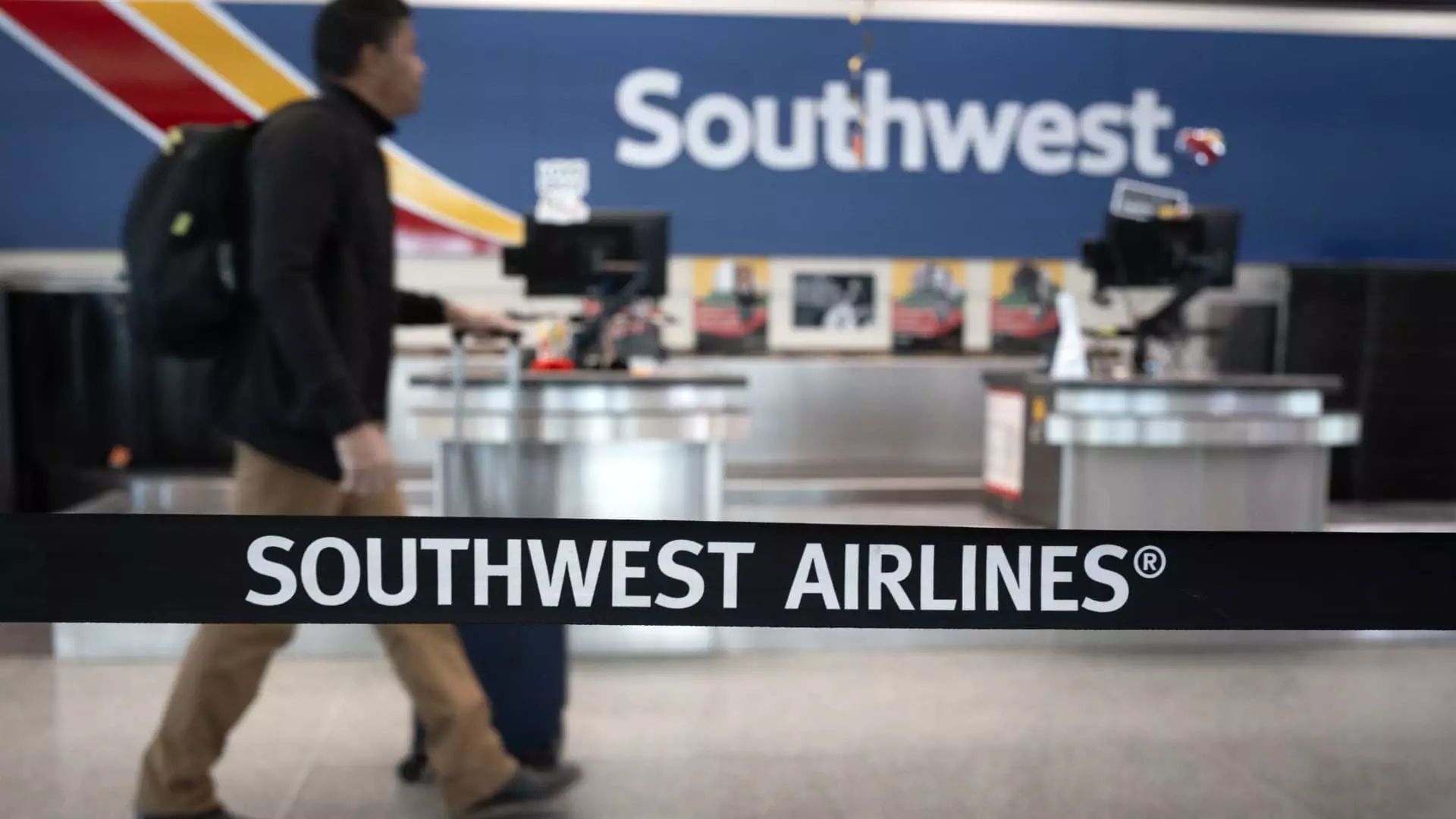As of Wednesday, travelers have been thrust into uncharted territory with Southwest Airlines, a carrier long-loved for its commitment to affordably flying families and business travelers alike. For over fifty years, this airline stood tall, epitomizing the idea that not all travel needs to come with exorbitant fees attached. Now, with the introduction of charges for checked baggage, Southwest has ignited a wave of discontent. This move strips away the very identity that distinguished them from their competition, embracing the notorious trend of revenue generation through hidden fees that many consumers loathe.
Historically, other airlines have engaged in the shameful practice of monetizing each additional service – from checked bags to onboard snacks. Now, with this sweeping policy change, Southwest is essentially saying goodbye to the last vestiges of customer-centric service it clung to so tightly. Instead of being a champion of affordable travel, the airline seems intent on following a path already riddled with dissatisfaction from consumers across the spectrum. It raises the question: is this merely a sustainable profit strategy, or is Southwest abandoning its loyal customer base in pursuit of corporate greed?
Commercial Pressure and Consumer Rights
It’s no secret that the airline industry has been under intense pressure to keep their profit margins afloat. In the wake of the pandemic, recovery in travel demand has not translated into financial stability for many. According to federal data, U.S. airlines raked in an astounding $7.3 billion from baggage fees last year. It’s a staggering figure that suggests the market has been conditioned to tolerate – or even expect – such charges. However, this sentiment isn’t reflected in consumer satisfaction.
Activist investors, such as Elliott Management, have a vested interest in maximizing profits, not prioritizing customer experience. Their influence has led to the termination of Southwest’s much-beloved “two bags fly free” policy and the introduction of basic-economy fares akin to those offered by Delta, American Airlines, and United Airlines. These entities often prioritize financial profits over loyalty, and with Southwest now following suit, it raises the ethical dilemmas surrounding consumer rights in an industry increasingly dictated by share prices rather than passenger care.
The Era of Basic Economy: A Masked Charge for Convenience
The term “basic economy” is deceiving. It’s not about value; it’s about limitations. By introducing this new fare structure, Southwest is clustering together customers who are willing to sacrifice flexibility and convenience for a marginally lower fare. With Basic tickets, the inability to make changes and the truncated boarding experience is a slap in the face to what many travelers have come to expect. More significant still is the expiration of fare credits, essentially turning money spent on tickets into a time-sensitive liability rather than an investment in future travel freedom.
Airlines should promote customer satisfaction, yet they continue to disregard passengers’ needs. While there may be a segment of travelers that would tolerate these inconveniences for a cheaper fare, it simultaneously disenfranchises regular fliers who value flexibility and comfort. By dismissing the ample passenger feedback, Southwest Airlines appears less interested in nurturing loyalty among its steadfast customers and more focused on chasing short-term gains.
Changing Tradition: From Open Seating to Assigned Seats
For years, Southwest’s open-seating policy was a defining attribute of its brand identity. Travelers have built a community around this democratic boarding process, often arriving hours in advance just to secure the coveted early boarding pass. The news that seat assignments are on the horizon in a bid to boost revenue signals a departure from that inclusive philosophy. This realization turns the allure of spontaneity into an experience that’s dictated by a corporate playbook, driven by efficiency rather than tradition and connection.
When an airline drastically alters its operational norms—even if that means forfeiting the open-seating principle—it sends a clear message: passengers are now merely sources of income rather than valued individuals. This marks a troubling shift from a customer-first approach to a profit-maximizing mentality, amplifying customer anxieties about their air travel experience.
A Heated Backlash: The Price of Loyalty
The backlash from Southwest’s loyal customer base has been nothing short of swift. Comments and complaints flood their social media platforms, and for every post about on-board puppies or friendly flight updates, there are customer complaints centering on the baggage changes. The emotional impact of this betrayal cannot be understated; for many, this isn’t merely about fees but a wrenching of trust.
When CEO Bob Jordan claims, “we have seen no book-down,” it begs the question of what metrics are being used to gauge consumer sentiment. Just because booking numbers remain stable does not translate into genuine loyalty or brand affection. Time will tell if — and how — these changes ripple through the fabric of Southwest Airlines, potentially costing them dearly in the long term. For a carrier once revered for its customer friendliness, the time has come to reckon with an uncomfortable truth: the price of loyalty may have just risen higher than ever before.

